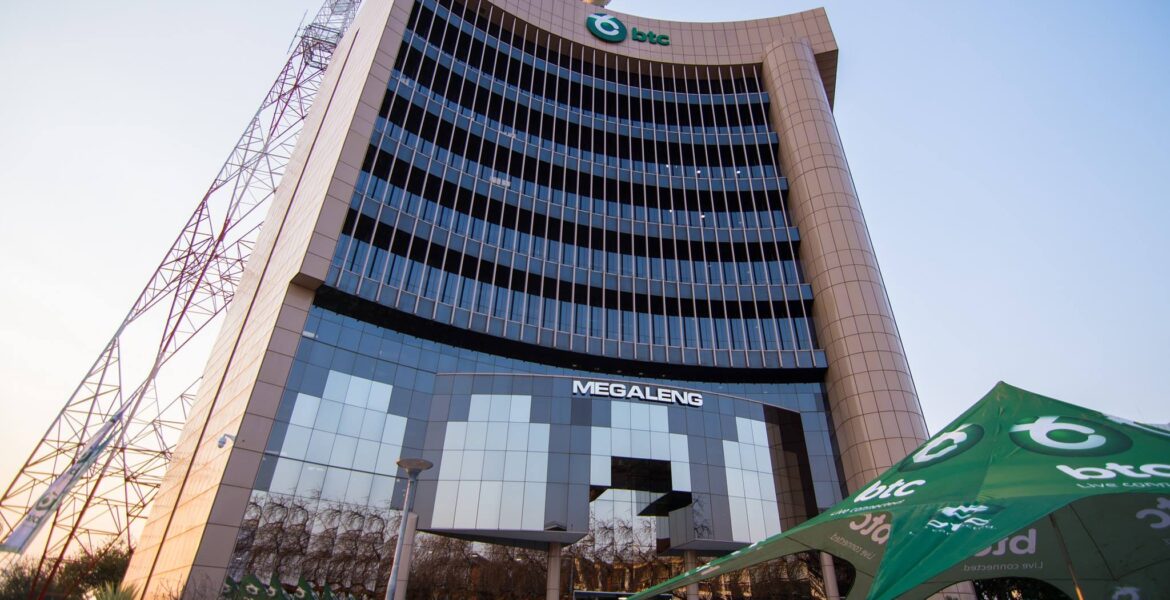Part three – Leveraging opportunities
Douglas Rasbash and O’Brian Mkali
This is the third part of the four-part series on privatisation. This part focuses on the two leading contenders for privatisation that is telecoms and energy, both of which are rapidly growing sectors with a massive potential for innovation.
The Botswana Telecommunications Corporation BTC
BTC was established as a State-Owned Enterprise SOE or parastatal in 1980. Recognising the rapidly changing telephony landscape, Government started the process of privatisation in 2012, through separation of network assets from operations and business. In 2016 the BTC was partially privatised making it the only privatised SOE. BTC issued 1050,000,000 shares of which Government held onto 51%. The IPO attracted 50,000 new investors and the share offering was oversubscribed by 65%. The IPO was fixed at P1 per share. The value today is P0.77 per share which fixes the capitalisation at P 808 M. Wall Street analysts suggest that the market cap is 45% lower than it should be making the share price P1.17.
https://www.speedtest.net/global-index/botswana revealed at the time of writing showed that data download speeds were 6.83 mbps and upload 5.14 mbps and are some slowest data transmission rates in the world. This is why Botswana was ranked 166th for broadband performance which is appalling. Mobile telephony improved significantly placing Botswana in 47th position globally. BOCRA in 2016 reported that there were 3.47 Million mobile subscribers of which Mascom are 1.84 Million Orange 1.12 million and Be Mobile 0.51, these numbers will be slightly higher in 2023, but the market shares between the three big operators will be similar. Additionally, Stats Botswana reported that BTC has 161,000 fixed line subscribers. Liberalisation of the telecoms sector ensured that market penetration was 94% and Botswana has the highest subscription rates in Africa. There are also well over twenty private telecom companies providing various ITC services. The ICT sector contributed 2.7% to GDP according to Stats Botswana – that is equivalent to P6.2 Billion which equates to P2,700 per person. BTC made an 8% profit in 2021 and provided its shareholders with a modest dividend. Clearly, liberalising the telecoms sector was successful.
And yet, international observers consider the Botswana drive to an information society to be mostly hype with very little substance. More than half of the population are without internet, and only 9% actually use it. Batswana are not at all prepared for the online world yet alone climbing on board the new era of dataism. In an earlier Gazette item the author suggested that Botswana are dead-men walking into the fourth industrial revolution or 4IR. Certainly at 44% long term unemployed youth are the sad manifestation of the failure to capitalise on the demographic dividend. The surge in ITC innovation is passing Botswana by. Botswana 4IR readiness index is 3.21/10 compared to SA 5.51/10, placing it at 111th in the world rankings.
The question is whether the Government retaining a majority stake in BTC is inadvertently depressing share price and constraining shareholder value? But other important questions arise. How many more jobs were created through liberalisation and privatisation? How has the economy benefited? Will internet penetration increase more rapidly, transmission speed and quality improved and new technology like 5G evolve at a faster rate if BTC was totally privatised? With the vision of Botswana becoming a knowledge-based information society more likely if the telecommunications sector were 100% private? The Author suggests Government must sell its shareholding as soon as possible.
The Botswana Power Corporation
Using information from the BPC Annual Report 2021 for fy 2020. It is stated that the BPC mission to provide safe competitive and reliable electricity services. Given its monopolistic status, it is unclear what is meant by competitive? Note that the mission statement makes no mention of commercial viability, sustainability or environmental factors. The vision of BPC is to be a leading power distributer of the region, instead BW relies on importing power. BPC has made losses continuously which the government support through tariff subsidy or grant. Over a ten-year period while BPC managed to increase its customer base by almost 100%, the volume of electricity produced to be sold remained almost the same – increasing by only 8% over 10 years. However BPC costs and income increased by more than 100% which meant that unit production costs increased from P0.7 per KWh to P1.4 per KWh. Prices have increased to by 110% to cover costs about twice as much as the CPI that increased by 54% over the same period. The accumulated BPC losses that government and the tax payer have supported amounted to P11 Billion from 2011 to 2020 – the total amount of government support over time will be much more. BPC has not fulfilled its vision to become a leading regional power supplier, indeed in 2020 it imported $119 million of energy according to Eskom. Note that in 2020 41% of the population have either no connection or only a partial connection to a reliable energy supply. Of the 59% that have a full connection, reliability remains an issue. The BPC cannot go on increasing its costs without commensurate increases in outputs – simply put its state-owned business model is not sustainable. Indeed the more its prices increase, the less demand there will be. With more and more demand being met by solar off grid power it will only get much worse for BPC. Its ridged business model – thermal generation dependency and political interference is killing the national power generator and almost certainly a national asset will become a stranded asset very quickly unless Government acts boldly. BPC needs to be unbundled into generator and distributor and both privatised by the next election in 2024.

